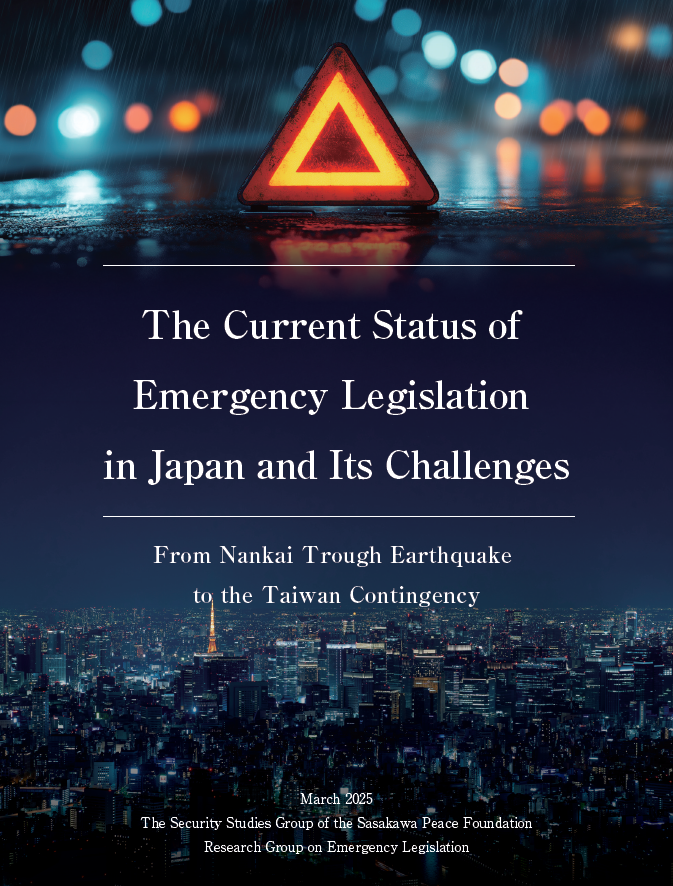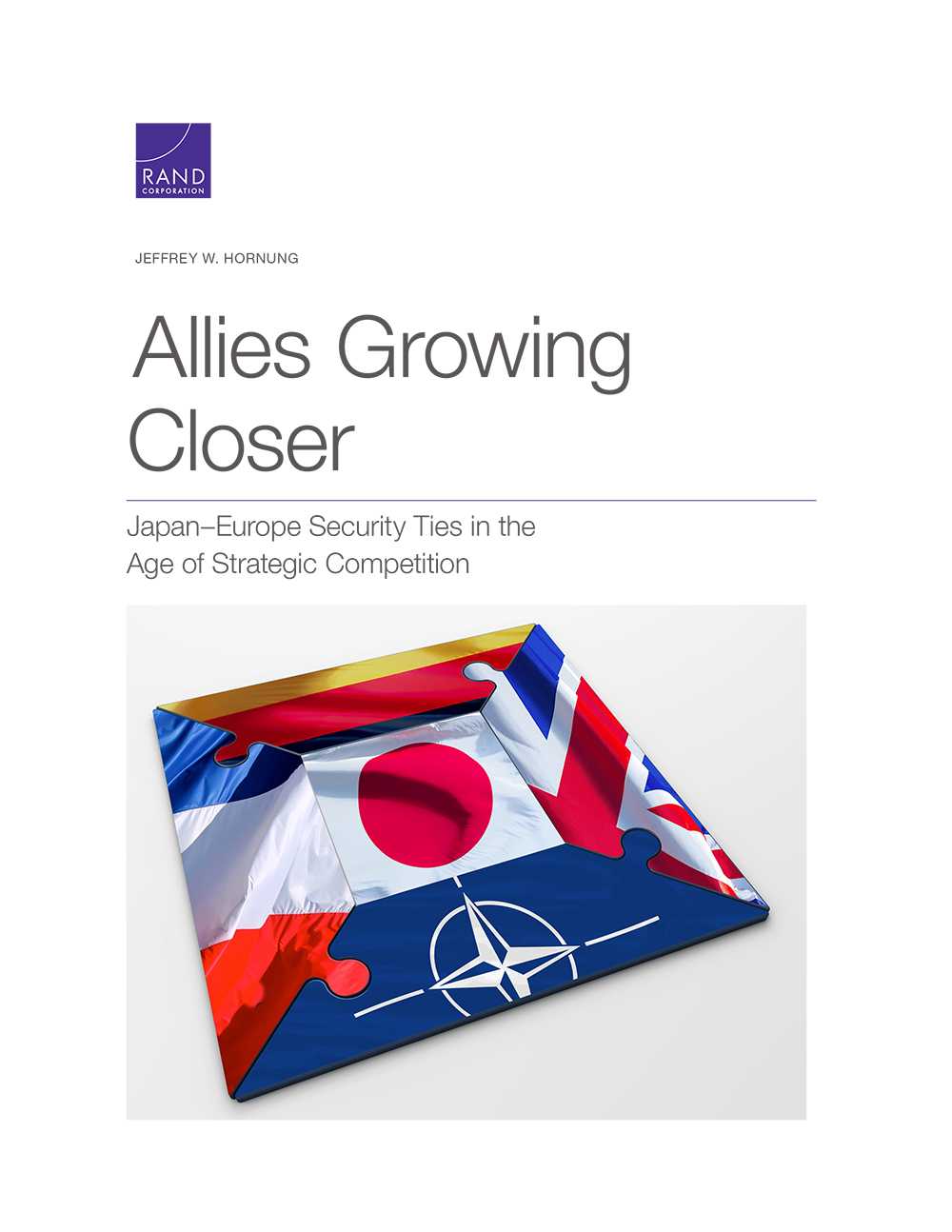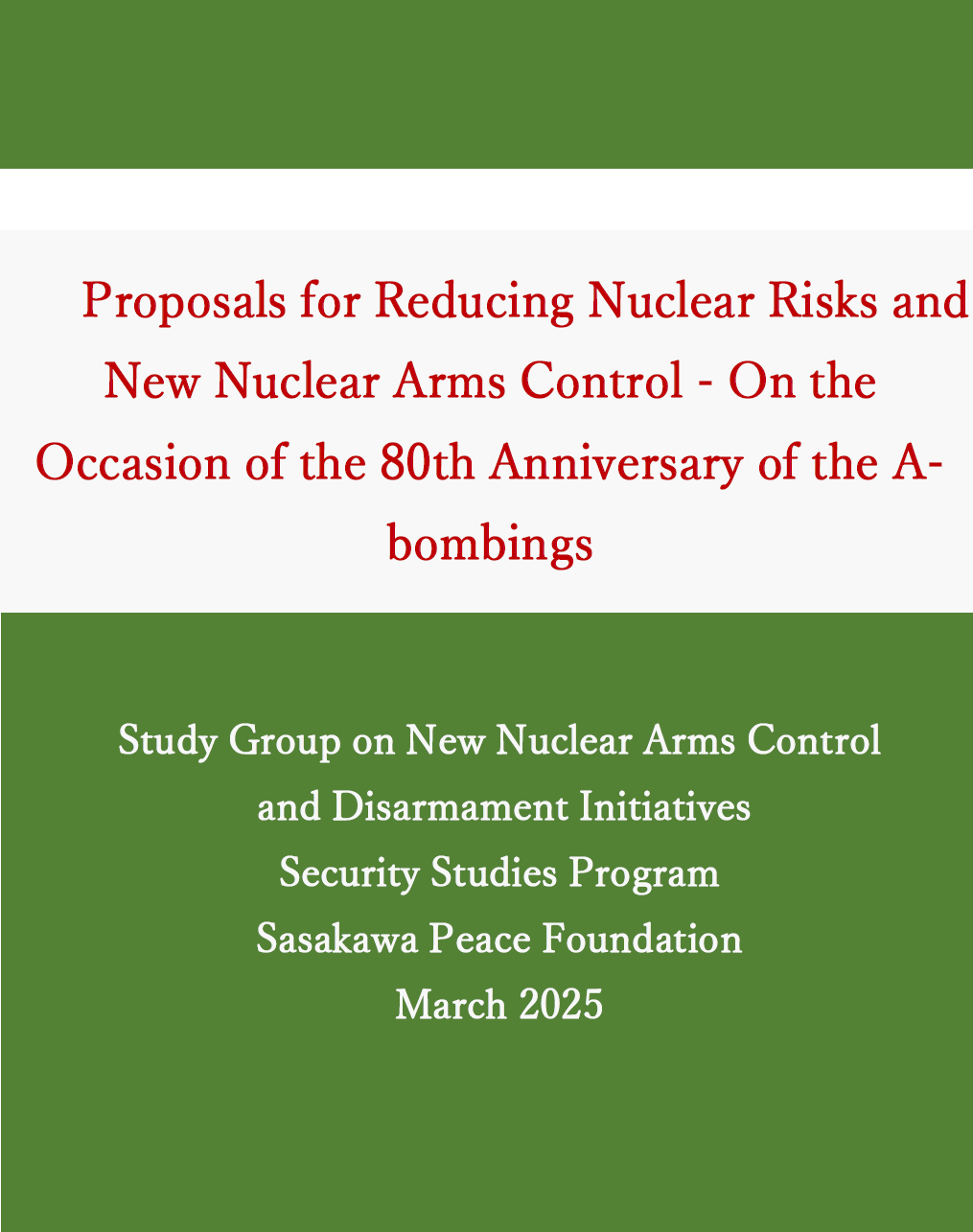
Allies Growing Closer
Japan–Europe Security Ties in the Age of Strategic Competition
February 16, 2021
The Japan-U.S. program worked with Dr. Jeffrey Hornung, political scientist at the RAND Corporation in the U.S., for a research project from 2019-2020 on the issue of Japan–Europe security relations from the U.S. perspective. The findings of this research have been published as “Allies Growing Closer: Japan–Europe Security Ties in the Age of Strategic Competition” on RAND's website. During his research, Dr. Hornung stayed in Japan for a month as an SPF visiting fellow in the summer of 2019 and also made a research trip to Europe.
The report describes the different types of cooperation in the security domain between Japan and European countries, the two most reliable allies for the United States in light of the current resurgence of great power competition.
The contents of the report include (1) Japan–U.K. relations, (2) Japan–France relations, (3) Japan–Germany relations, and (4) Japan–NATO relations. These relationships are discussed from various perspectives, taking into account the different historical backgrounds; ongoing collaborative activities including strategic dialogues, defense exchanges, as well as joint training and exercises; the motivations of each country to strengthen this type of cooperation; and the different levels of awareness of the international environment between Japan and European countries. The report concludes with a summary of the significance of these relations for the United States followed by policy recommendations.
Click the link below to download the PDF full text.
https://www.rand.org/pubs/research_reports/RRA186-1.html#download
The report describes the different types of cooperation in the security domain between Japan and European countries, the two most reliable allies for the United States in light of the current resurgence of great power competition.
The contents of the report include (1) Japan–U.K. relations, (2) Japan–France relations, (3) Japan–Germany relations, and (4) Japan–NATO relations. These relationships are discussed from various perspectives, taking into account the different historical backgrounds; ongoing collaborative activities including strategic dialogues, defense exchanges, as well as joint training and exercises; the motivations of each country to strengthen this type of cooperation; and the different levels of awareness of the international environment between Japan and European countries. The report concludes with a summary of the significance of these relations for the United States followed by policy recommendations.
Click the link below to download the PDF full text.
https://www.rand.org/pubs/research_reports/RRA186-1.html#download
Description
| Author/Editor | Jeffrey Hornung Rand Institute |
| Date of Publication | January, 2021 |
| Content | CHAPTER ONE Introduction Organization of This Report, Methodology CHAPTER TWO The Strategic Context U.S. Strategic Documents, Japanese Motivations, Conclusion CHAPTER THREE The United Kingdom History, Defense and Strategic Dialogues, Defense Exchanges, Defense Cooperation, and Defense-Related Industrial Cooperation, Training and Exercises, Motivations, Divergences, Conclusion CHAPTER FOUR France History, Defense and Strategic Dialogues, Defense Exchanges, Defense Cooperation, and Defense-Related Industrial Cooperation, Training and Exercises, Motivations, Divergences, Conclusion CHAPTER FIVE Germany History, Defense and Strategic Dialogues, Defense Exchanges, Defense Cooperation, and Defense-Related Industrial Cooperation, Training and Exercises, Motivations, Divergences, Conclusion CHAPTER SIX The North Atlantic Treaty Organization History, Defense and Strategic Dialogues, Defense Exchanges, Defense Cooperation, and Defense-Related Industrial Cooperation, Training and Exercises, Motivations, Divergences, Conclusion CHAPTER SEVEN Conclusion Similarities, Differences, Significance for the United States, Recommendations, Conclusion |

